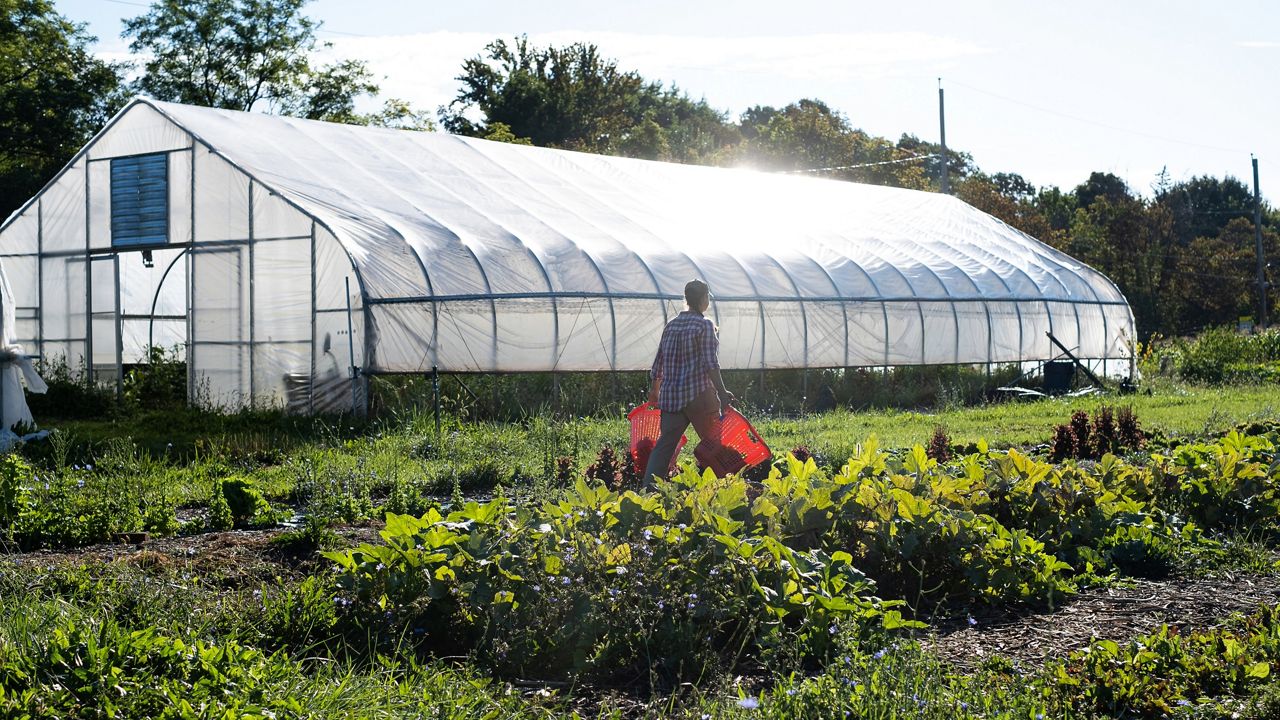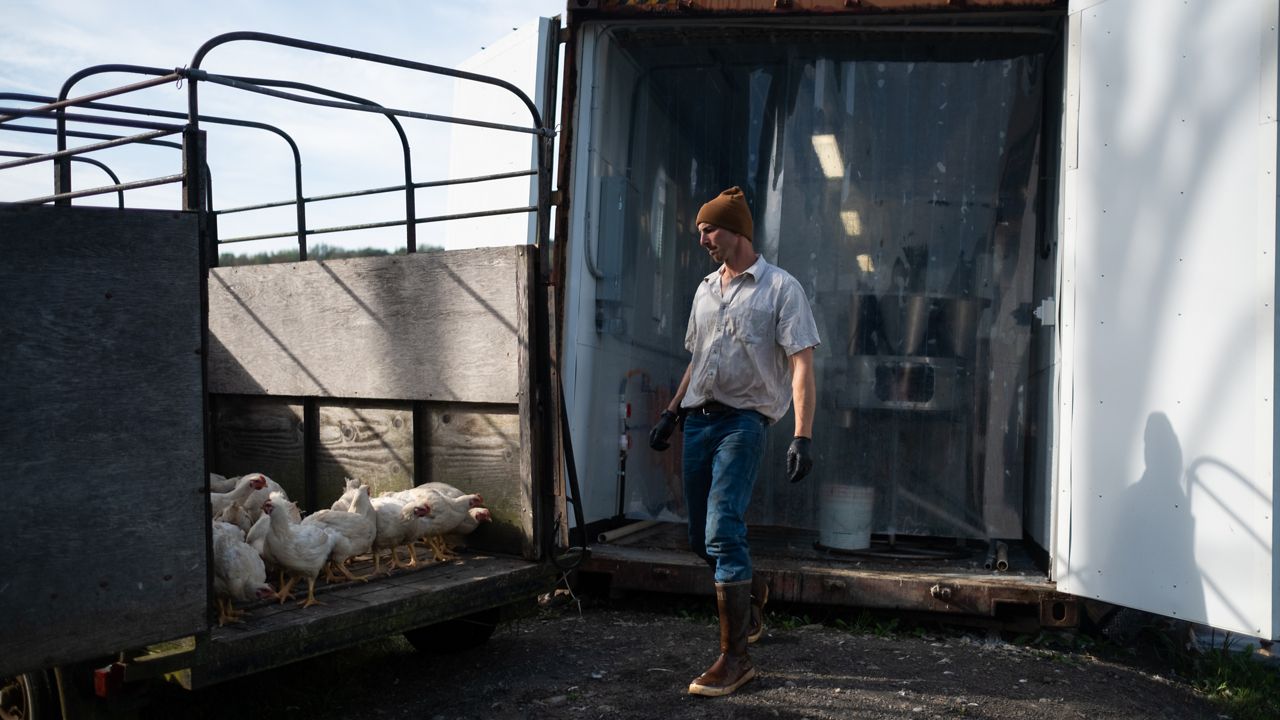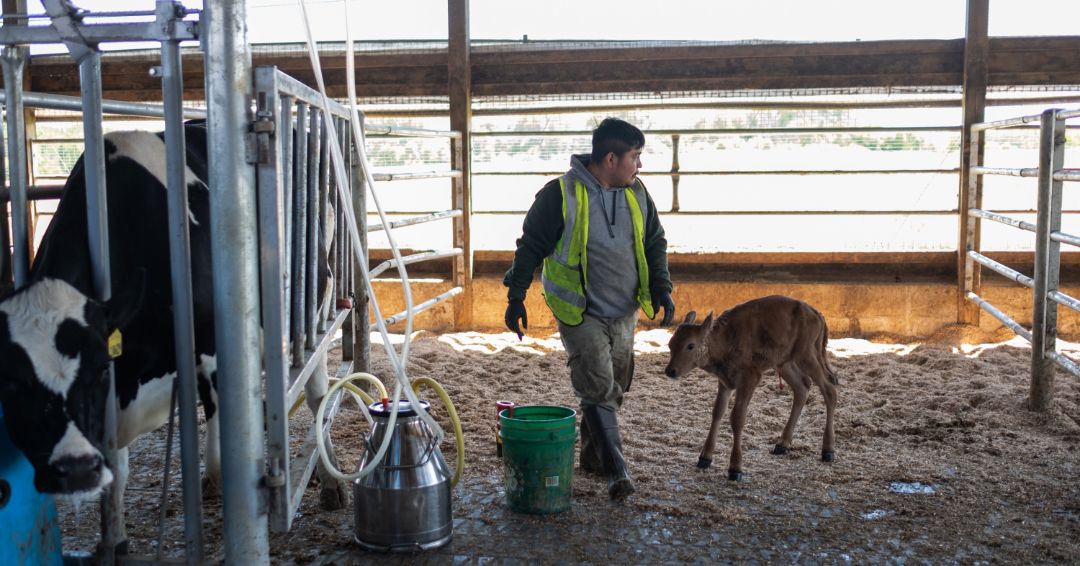A Cornell University plant breeding professor has spent 42 years developing a hybrid grape that would be more rot-resistant and hardy in harsh New York winters. Now growers have begun planting the grape.
Bruce Reisch has developed 14 grape varieties in his career, including the new one called aravelle, a hybrid of Cayuga white, another variety developed by Cornell in 1972, and Riesling.
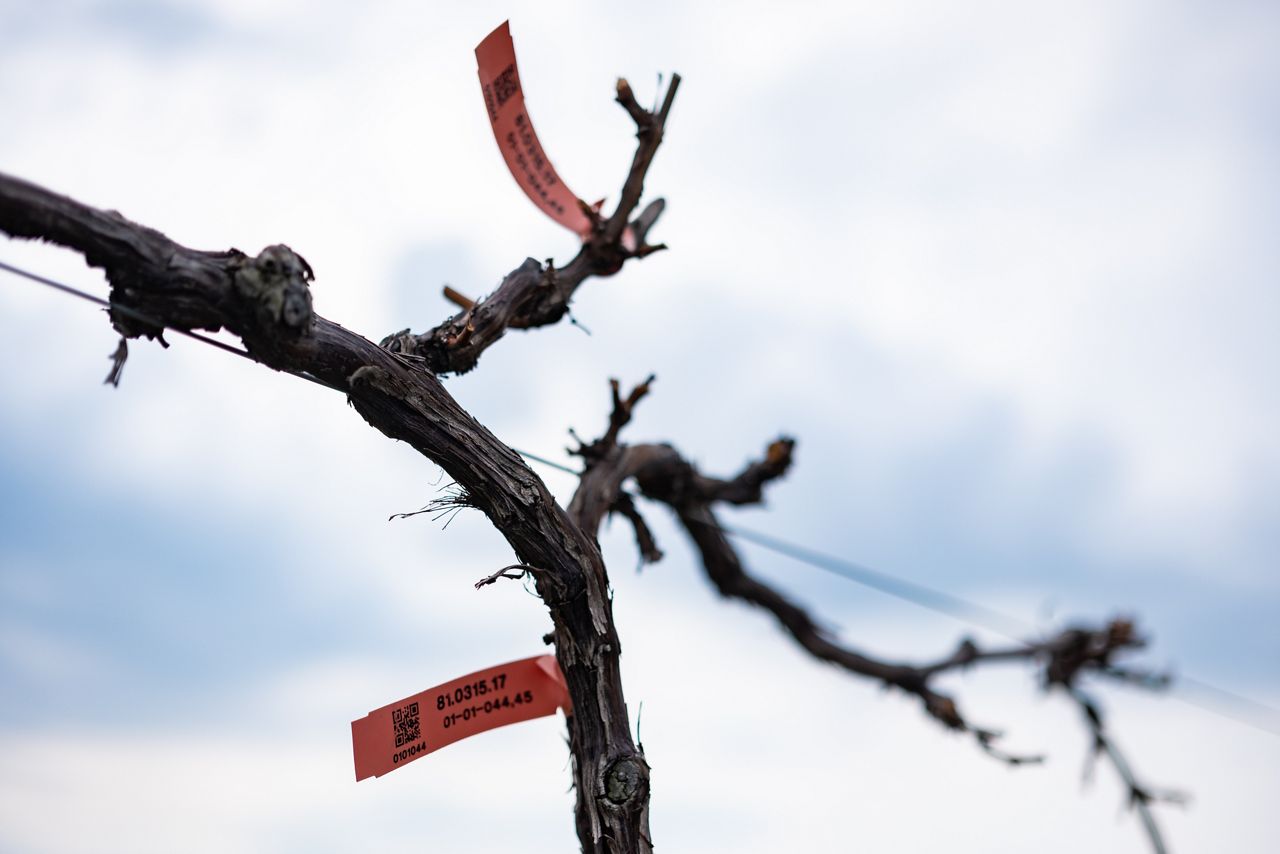
“We are generally trying to develop new grape varieties suitable for New York state and beyond,” Reisch said. “Grapes that are easier to grow, more naturally resistant to diseases and require fewer pesticides to grow that still produce higher quality juice, and especially high-quality wine.”
One of the risks of growing Riesling is what’s called bunch rot.
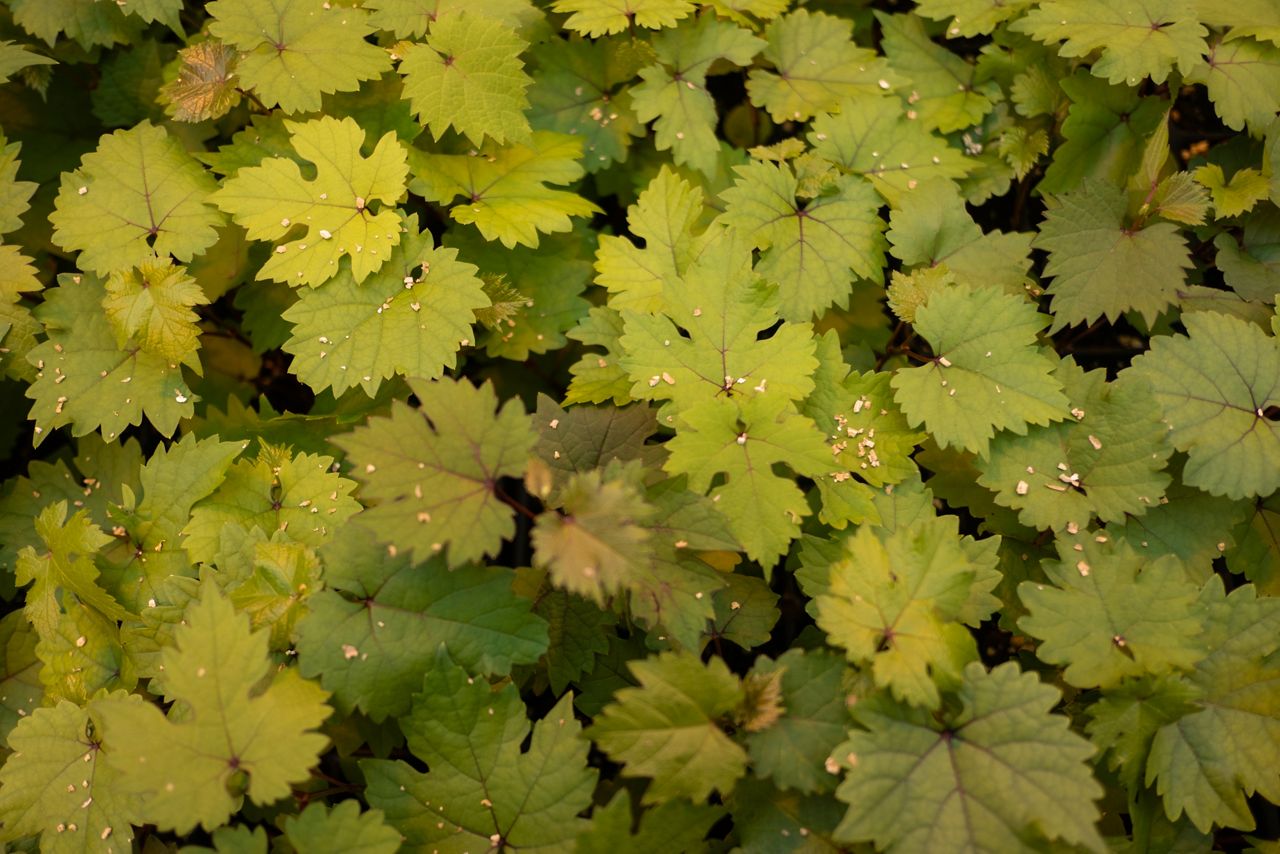
“The grapes have a fungal growth on them, they could be cracking and splitting,” Reisch said. “When you come near some of these bunches, they are browning, shriveling up and you also smell vinegar.”
Bunch rot hurts the quality of the wine, Reisch said, but aravelle makes it more manageable.
“The new variety might be resistant to bunch rot so when a Riesling grower sees bunch rot coming, they harvest before they’re fully ripe,” Reisch said. “If they opt to grow aravelle, they would not have to harvest as early.”
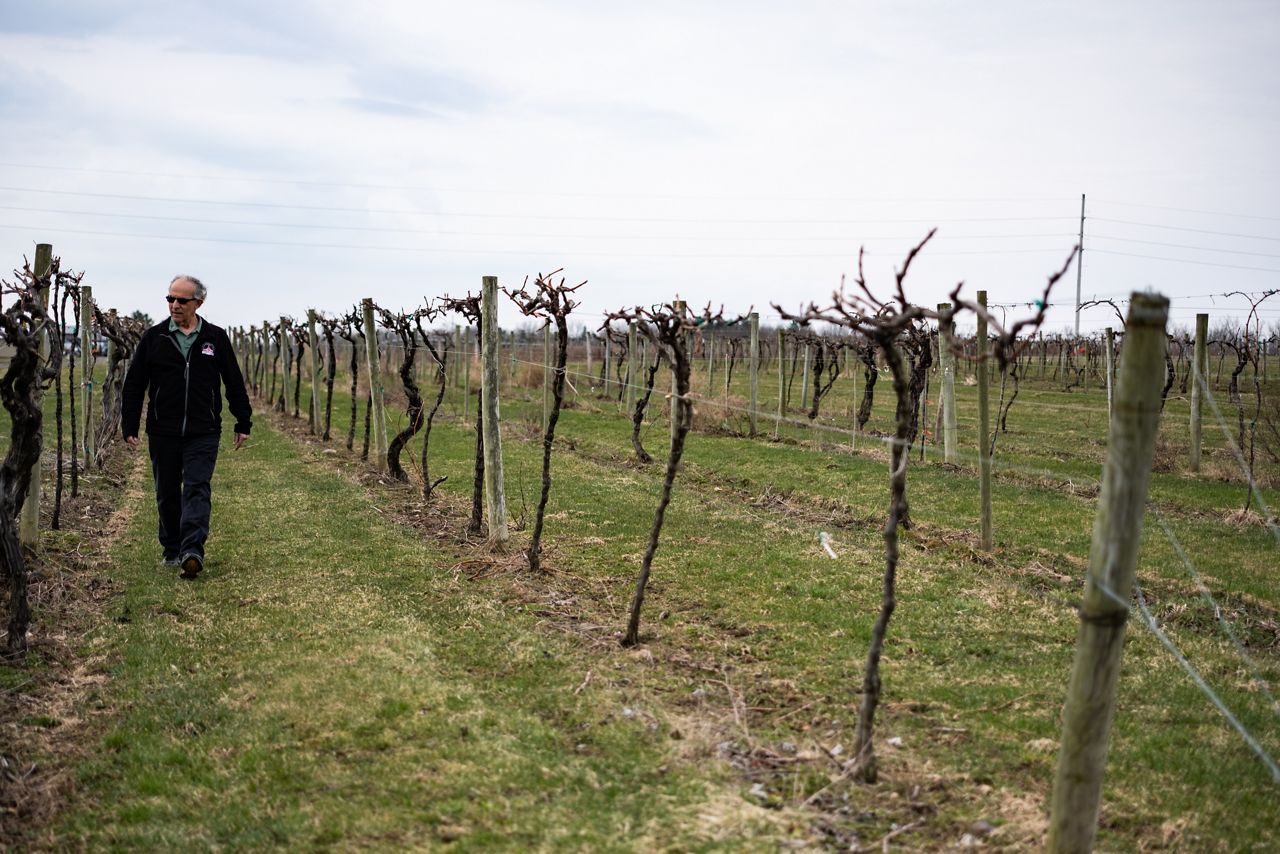
Aravelle offers the same quality of wine as Riesling, Reisch said.
“We do shoot for having varieties that are more winter hardy than the European grapes,” Reisch said. “In our measurements, aravelle is more winter hardy by a couple degrees than Riesling.”
Paul Brock, owner of Silver Thread Vineyard in Lodi, planted about an acre of aravelle last year.
“We will get a little bit of fruit this year, but it won’t be in full production until 2026 or so,” Brock said.
They will use the grape in two of their wines, Brock said.
“Good Earth White is a white blend with the other hybrid grape varieties we grow and Riesling, and Petillant Naturel is a sparkling wine,” Brock said.
Managing disease and getting the grape to survive is part of what goes into growing varieties whose genetics are not from this climate, Brock said.
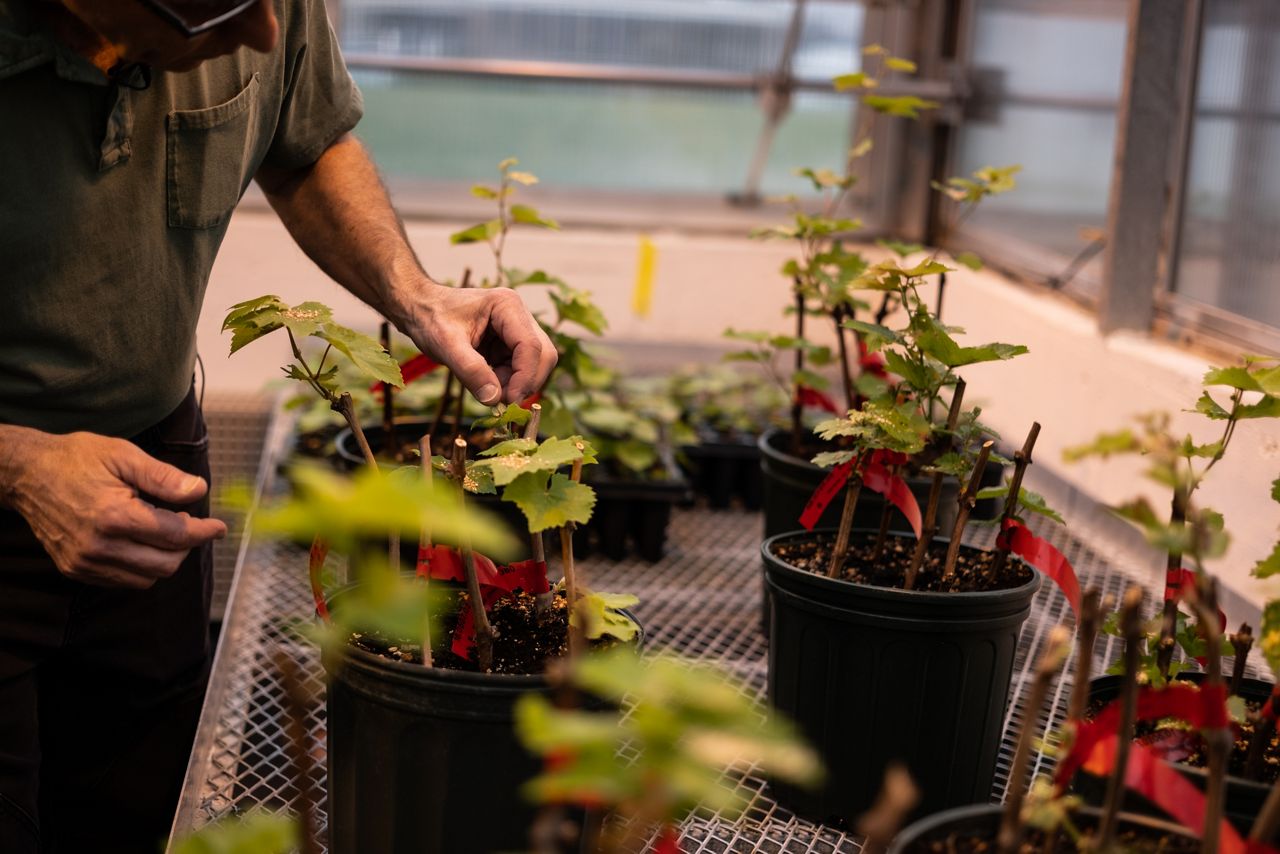
“By growing locally adapted hybrid varieties such as aravelle, we’re able to use less farm inputs and grow those grapes more sustainability and regeneratively,” Brock said.
With aravelle being more resistant to rot, he said they cana tend to the grapes without using chemical pesticides.
“We think we are going to be able to manage those without spraying any synthetic pesticides and use organic and biological control measures for this disease control and that’s a big deal,” Brock said.
Changing climate and extreme weather events inevitably cause more disease pressure, he said.
“Looking forward, varieties such as this will help continue to be able to grow and make wine at a very high level,” he said. “What Bruce Reisch does at Cornell is extremely important so that we have a diverse genetic pool to continue to grow food with.”







